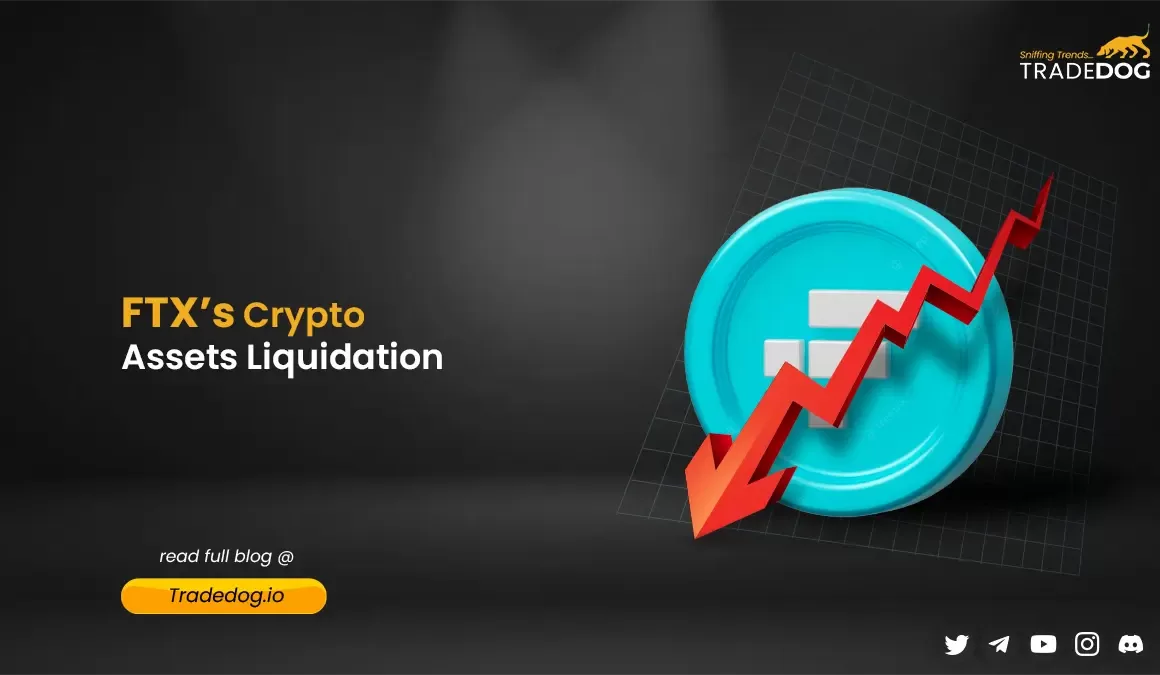Quick Links
The cryptocurrency world is abuzz with concerns as FTX, once a mighty crypto exchange, faces the imminent liquidation of its vast cryptocurrency holdings. This looming fire sale, driven by FTX’s desperate need to repay customers and creditors after its dramatic collapse last November, raises questions about its potential impact on the already bearish crypto market. In this blog, we’ll delve into the numbers, potential market consequences, expert opinions, and what this event signifies for the future of the crypto industry.
FTX’s Enormous Crypto War Chest
The bankruptcy filings of FTX reveal a staggering cryptocurrency treasure trove worth ~ $3.4 Bn as of late August. This includes about $1.16 Bn in Solana’s SOL token and $560 Mn in Bitcoin, alongside $1.5 Bn in cash reserves, bringing their total assets to approximately $7 Bn.
The above graph depicts the top 10 holdings (as of August 2023) of FTX.com, FTX.us and Alamada Digital Assets, which make up ~ 72% of their crypto portfolio, the remaining ~28% is distributed among more than 400 other tokens.
To meet their obligations to FTX users and creditors, the trustees overseeing the bankruptcy proceedings will likely have to liquidate a substantial portion of these holdings. While the exact amount to be sold remains uncertain, it is estimated that ~ $3 Bn may flood the market.
FTX’s Deadline for Creditors
The creditors of FTX have until September 29 to submit their claims against the exchange. In August, Kroll, the independent entity overseeing the claims process for FTX’s bankruptcy, experienced a security breach. This unexpected incident prompted FTX to temporarily suspend the accounts of claimants. However, the exchange was quick to reassure its users that their accounts remained secure, emphasizing that the suspension was a precautionary measure.
Kroll’s investigation revealed that the breach was the result of a SIM swap attack, with indications that hackers may have gained access to files containing personal information of some claimants. As the deadline for submitting claims approaches, FTX’s clientele is in a state of uncertainty since they have limited information about the potential scope of asset recovery and the exchange’s approach to refunding assets.
Potential Market Impact
The potential consequences of this massive sell-off are profound. It could lead to extreme volatility and further declines in the crypto markets, which have already been battered by the 2022 bear market. Major cryptocurrencies such as Bitcoin, Ethereum, and Solana may experience substantial downward price pressure if FTX floods exchanges with billions in digital asset sales.
Experts have also cautioned that the large-scale liquidation could exert immense pressure on the markets, comparing it to a wrecking ball striking crypto valuations if executed hastily. Nevertheless, a more structured liquidation, in coordination with market makers, could help mitigate panic selling and reduce price declines.
However, few important points to consider are that FTX will limit its weekly asset sales to $100 Mn initially and there will be flexibility to increase this limit to $200 Mn for specific tokens. When selling tokens on the open market, FTX will have to adhere to any vesting or unlock schedule linked to them. For instance, a significant portion of FTX’s Solana holdings won’t be accessible for sale on the open market until 2025. Further, if FTX chooses to engage in an over-the-counter (OTC) transaction, the buyer must still comply with the applicable schedule.
In contrast to the alarming notion that FTX will engage in a market sell-off of their holdings, a more plausible scenario is that a significant portion of these coins will be transacted through OTC channels. OTC deals typically don’t have a direct impact on the broader market because they occur privately, outside of public exchanges. In such transactions, buyers and sellers negotiate directly, often for large quantities of assets, without the transactions being immediately visible to the public. This confidential nature of OTC deals means that they don’t influence market prices in the same way as trades on open exchanges, where prices are determined by supply and demand visible to all participants. Therefore, OTC deals are less likely to cause sudden fluctuations or disruptions in market prices, making them a preferred option for managing large trades without adversely affecting market stability.
Implications for the Future
While FTX’s imminent liquidation may inflict short-term damage, it can ultimately benefit the crypto industry. Allowing prices to reset at lower levels provides a foundation for renewed growth when macroeconomic conditions improve. This sell-off eliminates the instability stemming from FTX’s failure and paves the way for more robust crypto projects and practices in the future.
Moreover, this incident underscores the resilience and independence of decentralized cryptocurrencies like Bitcoin in contrast to centralized failures like FTX. The transparency and community-driven nature of projects like Bitcoin and Ethereum represent the future of the industry.
Closing Thoughts
Despite the vulnerability to volatility spikes from FTX sales, signs point to the crypto market bottoming out in the coming months. The Federal Reserve’s interest rate hikes are expected to slow, early signs of peaking inflation are evident, and institutional investors continue to pour money into crypto despite market conditions. Past crypto bear cycles ended with prices exceeding previous all-time highs, and there’s no fundamental reason to expect a different outcome this time.
In conclusion, FTX’s impending liquidation presents a critical juncture for the crypto industry. While it poses short-term challenges and potential market volatility, it also offers an opportunity for a fresh start. FTX’s measured approach to liquidation and the use of over-the-counter channels may help mitigate market disruption.
As the crypto community anxiously awaits FTX’s fate, it’s important to bear in mind that the industry has shown its ability to bounce back from challenges in the past, and this situation is likely no exception.









